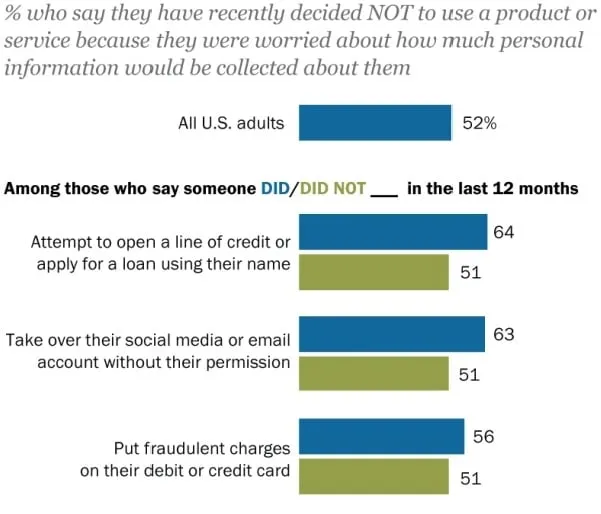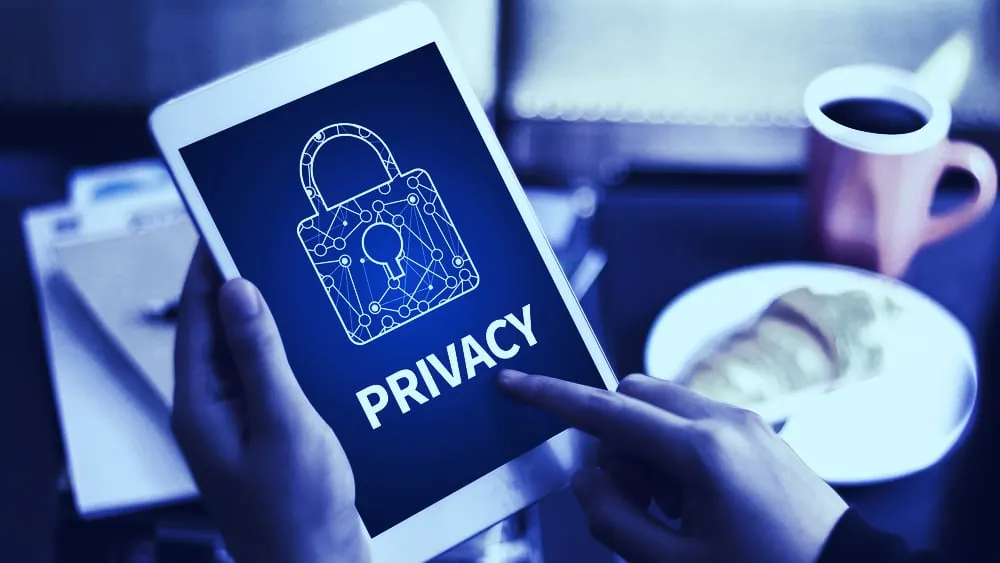In brief
- Over half of Americans are concerned about their personal privacy.
- 52% of Pew Research's survey respondents prefer not to disclose their sensitive data.
- In the face of the coronavirus pandemic, surveillance systems are becoming increasingly invasive.
Over half of Americans are refusing to use some products or services due to personal privacy concerns, according to survey results published on April 14 by Pew Research Center, a nonpartisan American think tank based in Washington.
Per the report, many Americans lately believe that their personal information is less secure and are concerned with how companies and the government utilizes this personal data.
Based on the survey, Pew reported that 52% of adult respondents were worried about disclosing their personal information and were unsure how much of it would be required, consequently opting out of some services and products.

Notably, people who became actual victims of data breaches in the last 12 months were much more inclined to keep their personal data safe.
“Those who said someone attempted to open a line of credit or apply for a loan using their name were more likely than those who did not experience this to say they decided not to use a product or service out of privacy concerns (64% vs. 51%),” the report explained.
The researches also noted that the same pattern applies to people who previously had their social media accounts or email addresses stolen—63% of them voiced concerns about privacy.
Other notable factors included education and income: 55% of college graduates and 54% of adults with an annual household income of $75,000 or more decided not to use products or services because of privacy concerns.
Among the respondents with a high school education or less and an income under $30,000, only 45% and 48%, respectively, were concerned about the safety of their personal data.
As Decrypt reported recently, the global coronavirus outbreak has prompted many governments around the world to roll out increasingly invasive surveillance systems, greatly exacerbating personal privacy concerns.
While there are effective ways to protect your sensitive data online, some experts argue that the coronavirus pandemic could have grave long-lasting consequences for personal privacy in the future. But at least people are starting to think about it.
Tips
Have a news tip or inside information on a crypto, blockchain, or Web3 project? Email us at: tips@decrypt.co.

